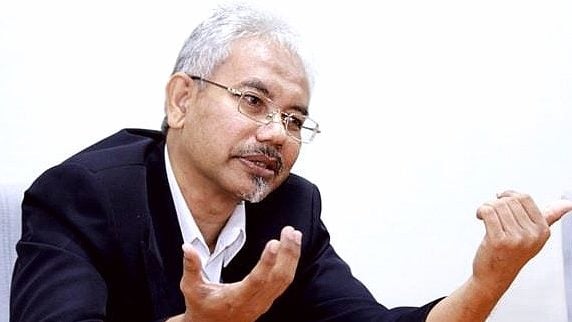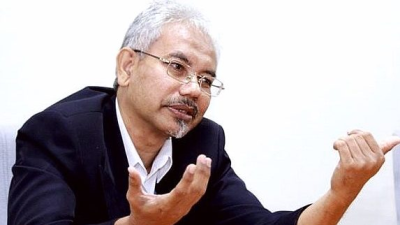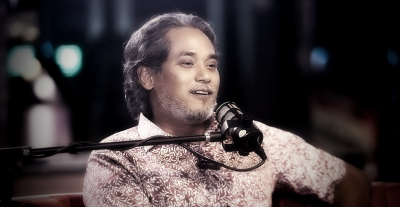
One of the main spirits of a democracy is the importance of providing constructive criticism to the elected representatives steering the nation.
Before the advent of the internet and social media, this responsibility was limited by expressions in writing to the mainstream media.
The media then had some control as to the right to publish the criticism or phrasing it in a better tone or not publishing it at all.
Nowadays, we have criticism of elected representatives running amok on content, context and most importantly of decorum.
Because of anonymity of the internet and the protection of privacy, this brings out the worst in citizens venting their anger, frustration and concerns out in the open without any filters.
For me, this aspect of democracy does more damage to democracy itself as it gives bad influence on society.
In this article, I wish to explain how I frame my criticism in content, context and adab.
Recently, there was a scathing article from a Malaysian comfortably living abroad writing her opinion piece on education and ending with calling for the minister concerned to be sacked or replaced. Wow! Hebatnya orang itu!
As a Muslim, a Malay, a Malaysian and as an academic, I think that the writer has stepped out of the bounds of adab and also several contexts which I will explain.
There has been many such civil society individuals as well as bodies that have given criticism without the necessary research and decorum, but certain individuals like the one I am referring to seems to be the worst.
Normally, all these individuals and civil entities are respected by Malaysians including myself, but now I have doubts about their intentions in creating a better Malaysia.
Perhaps they all have good intentions but certainly the manner of expressing that intention is, to me, disastrous for a maturing society.
What do I consider a good constructive criticism?
First and the most important aspect of a criticism that I practise for myself is to ask the question to my own self, can I do better than the prime minister or the minister under scrutiny?
I would safely say that I would never be able to perform the function of most ministers and especially the prime minister, and so I tend to be a bit more careful in criticising these people.
I do not have the arrogance of being in their shoes if ever invited to. My criticisms are mostly targeted at the Ministry of Religion, Ministry of Higher Education and the Ministry of Unity, because if called upon, then I would have to perform those roles if ever I was appointed.
I have written extensively about many issues on Islam, education and unity. So, the first question is, can you do better? If you can’t or dare not be the office you are criticising, then you must frame the criticism only to the particular issue and not call upon the minister to be sacked. That act is simply biadab or kurang ajar.
Secondly, I would weigh the context of the issue being criticised not just on the subject alone but taking into consideration the lay of the ground in politics and society.
Many issues of Islam need to take into account how the opposition will play on it and also how voters might react negatively.
As an academic, these considerations are not important, but I also write as a Malaysian and as a citizen-politician in order to steer the right way for the issue to influence positively in the public realm. Bukan main tembak saja!
Most individuals are good at heart, but questionable in their methods and understanding the context. Take the Imam Nawawi issue, most entities and individuals who complain do not bother to seek clarification first from the ministry or to certain knowledgeable Muslims.
They act in a total vacuum but their good intention may cost many Malaysians to lose faith in the only government which can fight against extremist Islam.
Can these entities and individuals fight in isolation against the rising tide of conservatism? If not, then why shoot the only messenger of hope?
Finally, the criticism of any issue must come with realistic suggestions, not fantasy ones copied from some Western countries.
Look at the reality and mood of the society and phrase the criticism as well as the suggestion carefully and realistically.
I have many times criticised PhD candidates in their literature review for criticising unrealistically of works done by the others.
Criticism in religion and democracy is not a licence to complain about everything and anything. There is always a context and these contexts must be addressed also, or the criticism will just be a hollow complaint.
We are a society like the Malay saying, seperti kera mendapat bunga. The monkey does not appreciate the beauty and symbolic meanings attached to a flower and it therefore destroy it.
Similarly, with good intentions, our good Samaritans will destroy the very society we think we want to save and make better.
For the first time in human history, each of us has the technology to market our criticism widely to the world. And for the first time in history, we all can build or destroy our society and nation by our own words.
We must take stock of the useful technology and phrase our concern carefully.
Another Malay proverb says, terlajak perahu boleh diundur, tetapi terlajak kata…our nation boleh binasa.
In Islam, we will be judged by Allah on what we say, to whom we say, how we say, and most importantly, the intention in our hearts.
Let us rebuild Malaysia with helpful criticisms that are constructive, well researched and most importantly phrased in a matured adab. Or else, well…I guess, we deserve whatever country we get in the past, in the present and in the future…because of us, not the politicians.
(Prof Dr. Mohd Tajuddin Mohd Rasdi is Professor of Architecture at a local university and his writing reflects his own personal opinion entirely.)
ADVERTISEMENT
ADVERTISEMENT





































